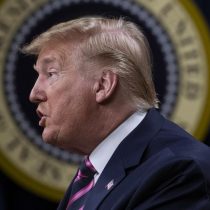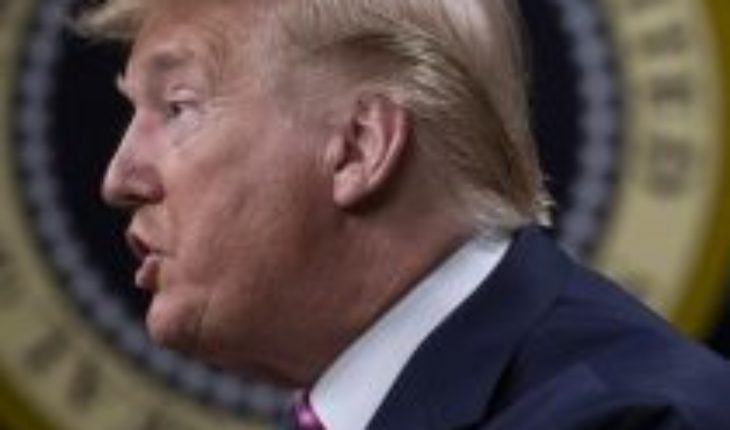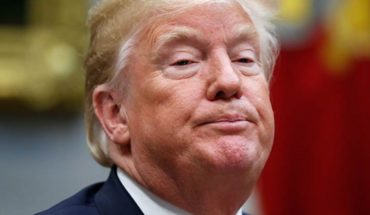
There is a battle of economic power in the global oil patch and it is fast becoming a dispute of wills between the leaders of Saudi Arabia, Russia and the United States.
Mohammed bin Salman, the 34-year-old Saudi crown prince, on Tuesday intensified a war for the price of oil with a move to flood the market with crude oil, a day after the oil market suffered its worst withdrawal since 1991. Vladimir Putin of Russia helped start the fight in the first place to deal a blow to the United States.
The future of the U.S. oil market and shale industry is at stake, and President Donald Trump’s next move could be key.
The United States has become the world’s largest oil producer, so it is now a target for the Saudis and the Russians, which are just below. Trump, who bets on re-election in November becomes more difficult with the spread of coronavirus and every downward rung on key economic indicators, promised Monday to help America’s shale drills. He could still exert influence over Saudi Arabia, which benefits from U.S. military support.
Trump called the prince monday to discuss the price war, according to two people familiar with the situation.
“It’s no longer about economics,” says Chris Weafer, ceo of Macro Advisory, a Moscow-based consultancy. “All three are suffering at this price.”
At first glance, America should be the loser. Drilling in the Permica basin of West Texas and New Mexico is much more expensive than in Siberia or the Saudi desert. Shale producers need an average of $40 to $50 per barrel to reach the breakeven point, according to Rystad Energy. That’s way above current prices. Producers have already been weakened by lenders reluctant to finance their drilling and coronavirus, which has reduced demand worldwide.
Brute force
But the quarrel has less to do with the economy of oil fields and more to do with brute force. To that extent, Trump might seem to be in a more comfortable position. While the price war started by Riyadh and Moscow is directly fuelling their own oil revenues, it is likely to help American motorists, who are the world’s largest source of oil demand.
Trump applauded Monday’s price drop, tweeting that it was “good for the consumer.”
For Riyadh and Moscow, on the other hand, it’s a matter of life and death. Saudi Arabia relies on oil for nearly 70% of its tax revenue, according to the International Monetary Fund. For Russia it is 40%, including gas.
Strengthen positions
Both Prince Mohammed and Putin have taken steps to strengthen their authoritarian control over their countries. Prince Mohammed imprisoned two high-ranking members of the Saudi royal family over the weekend, on charges that they were planning a coup d’état. Putin is reviewing the Russian constitution in a movement seen in preparation for retaining influence after his current term, the last within existing boundaries, ending in 2024.
If the price war persists for months, economic resistance would determine the winner. In this respect, Saudi Arabia appears to be in a weaker position. Riyadh needs more than US$80 per barrel to balance its budget, more than at any time in the last 20 years. When it comes to touching the piggy bank, the kingdom’s cash reserves are $500 billion, one-third less than its 2014 peak.
Domestic policies
Russia, on the other hand, has spent the last five years restoring its economy to a lower oil price and rebuilding reserves of US$570 billion. While sustained economic pain would come at an awkward time for the Kremlin, as Putin has promised to improve living standards, the budget has some built-in resilience. Following the impact of the fall in the price of U.S. oil and u.S. sanctions in 2014, Moscow has reduced the price at which its budget reaches equilibrium to $50 per barrel, compared to US$115 in 2013. Russian companies can make a profit at a much lower oil price.
Trump, on the other hand, may feel the impact sooner in the domestic political sphere. The pain of the U.S. oil industry could affect its popularity in Texas, which its Democratic opponents consider a possible battlefield state. The price drop is bouncing off U.S. financial markets, a potential weakness given the president’s own promotion of high stock prices as justification for his re-election.
“The trigger for the U.S. to get involved is whether this fall in the price of oil jeopardizes financial stability,” says Bob McNally, founder of oil consultancy Rapidan Energy Group and former administration official George W. Bush .
Indeed, despite Trump’s tweet Monday, several U.S. officials said they were unhappy with the oil price war that caused the biggest drop in stock markets since 2008.
In a statement Monday, the U.S. Department of Energy referred to “attempts by state actors to manipulate and shock oil markets.”
If economic pain is felt in all three countries, some operators speculate grimly about the escalation potential in the war of wills. Trump has already shown a willingness to use tariffs and sanctions to achieve its political goals, while Russia and Saudi Arabia are involved in political and military power struggles throughout the Middle East and beyond.
“If I were President Obama, there would be more confidence that the administration would do nothing and let the oil price find its own level,” Weafer says. “With President Trump, you just don’t know what he’s going to do.”





